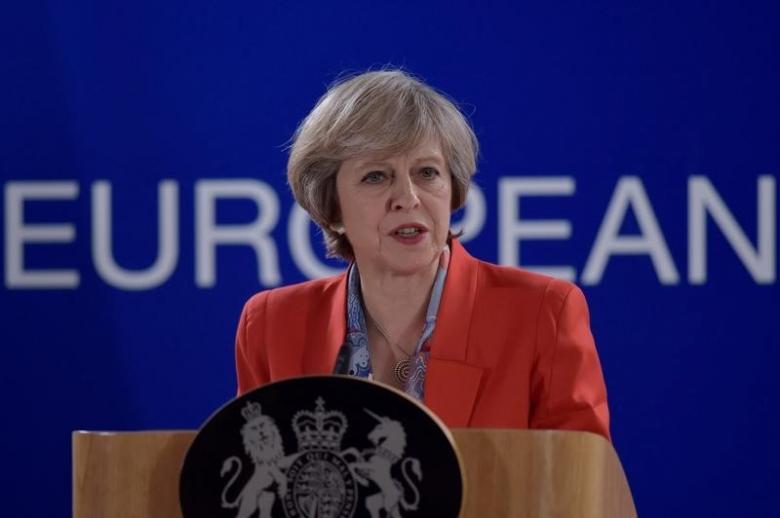
Prime Minister Theresa May will call Friday for an unprecedented free trade deal with the EU after Brexit in a major speech, but is expected to acknowledge that Britain will have to make sacrifices in its economic relationship.
As tensions with Brussels soar over the implications for Northern Ireland, May will also emphasise that Britain wants to be “good friends and neighbours” with the EU, a minister said.
In a much-anticipated major speech, just weeks before trade talks are due to start in Brussels, May will argue Britain must forge its own path free from the bloc’s current rules.
But she will call for the “broadest and deepest possible agreement, covering more sectors and co-operating more fully than any free trade agreement anywhere in the world today”.
May will say this is “achievable” because “rather than having to bring two different systems closer together, the task will be to manage the relationship once we are two separate legal systems”.
EU leaders have been pressing the prime minister to clarify what she wants before they agree their position on the future economic partnership at a summit later this month.
Brussels raised the pressure this week with a draft treaty suggesting Northern Ireland could stay in a customs union with the EU while the rest of Britain remained outside.
– Fall-back option –
The proposal is a fall-back option if London fails to come up with a better solution to avoid new customs checks between Northern Ireland and Ireland, where some fear a “hard border” could upset the fragile peace.
But it prompted outrage in Westminster, where May warned it threatened the integrity of her country and was something that “no UK prime minister could ever agree to”.
A senior minister indicated Friday that May would however use her speech to address accusations — including by two former British prime ministers this week — that she has not been honest about the downsides of Brexit.
“She is going to recognise that there are things that we can’t have as we leave the single market and as we leave the customs union,” transport secretary Chris Grayling told BBC radio.
But she would set out areas that would benefit both sides, including staying part of some EU agencies such as on aviation, he said, adding that Britain wants to be “good friends and neighbours.”
– ‘No frictionless trade’ –
In a speech that had to be moved at the last minute from the northeast of England to London due to bad weather, May will emphasise that the 2016 referendum vote to leave the EU “was a vote to take control of our borders, laws and money”.
But EU President Donald Tusk warned Thursday ahead of talks with the prime minister that Britain could not expect to sever formal ties with its closest trading partner and still reap the same benefits.
“There can be no frictionless trade outside of the customs union and the single market,” he said.
May’s government is divided on the way forward, and her speech was drawn up following a marathon meeting of senior ministers last week, and endorsed in a special session of the full cabinet on Thursday.
Eurosceptics warn that staying in the customs union and single market are akin to not leaving the EU at all, and Foreign Secretary Boris Johnson has suggested the Northern Ireland issue was being used to force a change in strategy.
Jacob Rees-Mogg, a leading eurosceptic lawmaker in May’s Conservative party, told AFP that there were “technological solutions” to avoiding a hard Irish border.
He said that for Britain to stay in a customs union, forced to follow EU rules while losing its seat at the table as an EU member, would be “fatal for Brexit.”
However, the main opposition Labour party on Monday came out in favour of the idea, which is already backed by the main business lobby groups.
Their change in stance raises the stakes in parliament, which will vote on the final exit deal and where May has only a slim majority.




